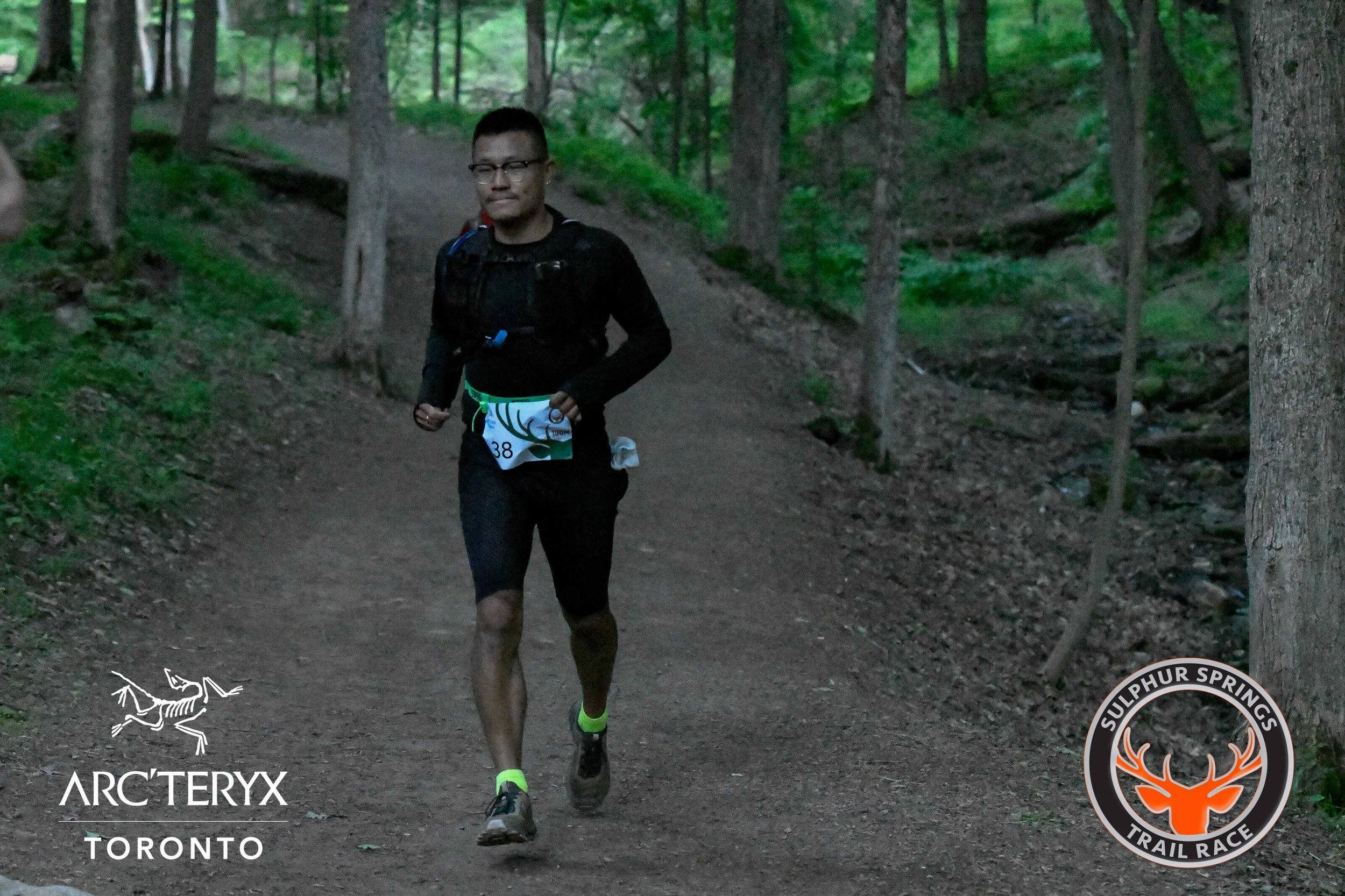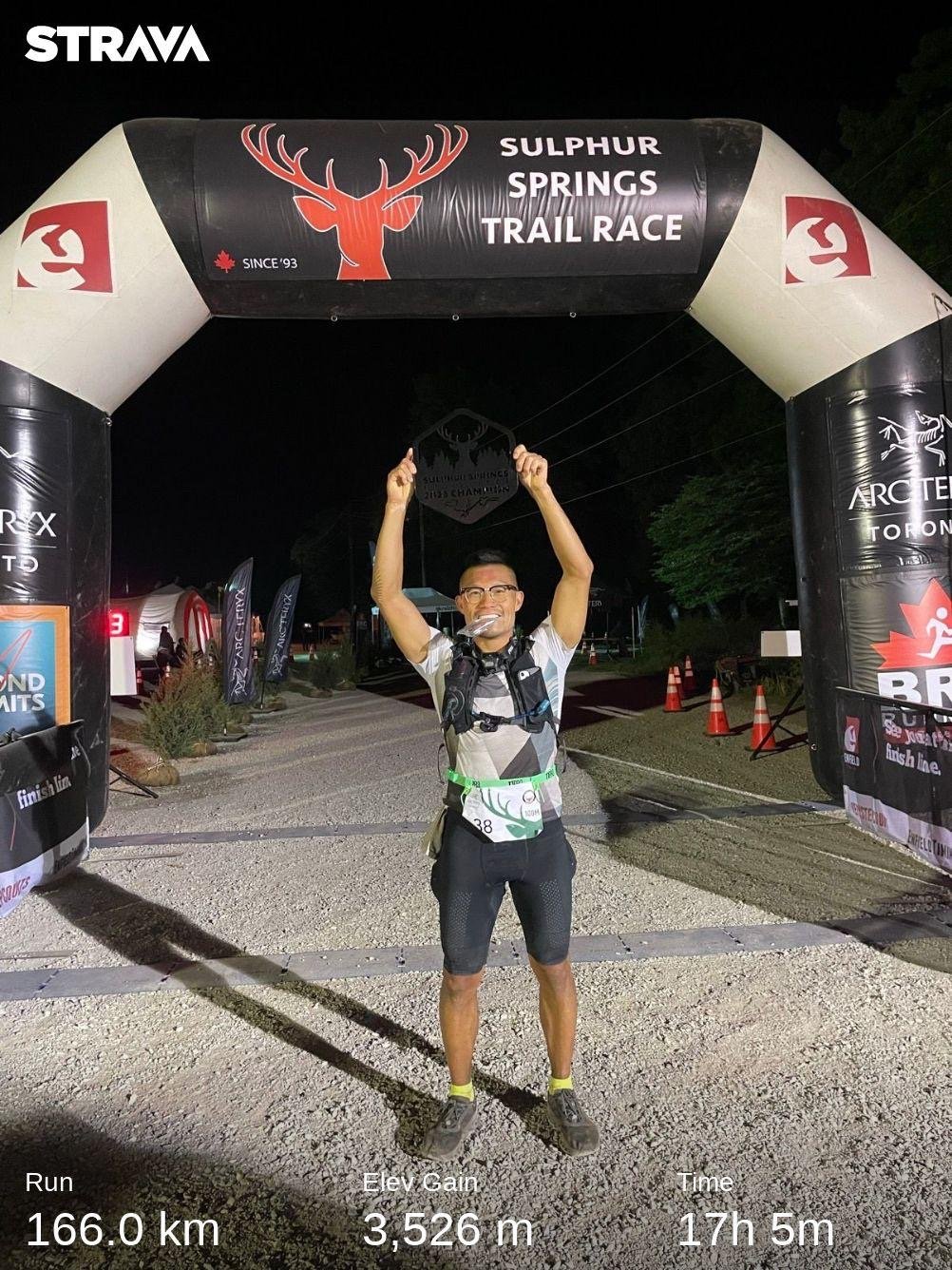LIFE AFTER (winning) A 100-MILE ULTRAMARATHON RACE (for the 2nd time)
After a week of body rest and recovery, my mind still can’t rest. Restless ‘should’ing’ thoughts have slowly started to flood my mind, like “why am I not as happy as I was the last time I won? I should be loving life, basking in the glory of two wins!?!”. Obsessive and addictive ‘what’s next?’ suggestions keep nagging at me, “maybe 200 miles? Back to Ironman triathlon training? Register again and make it a 3-peat win!” Don’t get me wrong, winning a race for the second time is a huge feat and something I am very proud of, but at the moment, it is being overcasted by mind-traps, expectations, and overthinking.
As much as this sounds like an ironic pity party, post-race blues are not so uncommon. I wanted to transparently share the reality of this unique outcome, told without bias and sugar-coating. By articulating the rumination of my mind and emotions, I hope to make this ultramarathon experience more understandable, more humane, and more real. A win is not just champagne celebrations, and “We are the Champions” playing in the background 24/7, well, maybe for that 10 seconds after crossing the finish line. The brightness of a win comes from having to dig into the darker corners of the soul, and face the inevitable fading of that light. Part of the bigger picture of this endeavor was to raise mental health awareness. So here is the behind the scenes, inside-look into the mind and heart of an Ultramarathoner, after the winning celebrations have faded away.
The post-race blues is a phenomenon that occurs after accomplishing an all-consuming, long-term endeavor. It can be experienced after a win or a loss, and from an activity beyond running such as a graduation, a project launch, a big show, or even a long trip. It occurs because of the depletion of endorphins, and other brain chemicals that were used up during the life-changing endeavor. After an Ultramarathon, not only does my body require physiological repair from microtraumas in muscles and joints, so does my mind from such an emotionally exhaustive adventure that was 6-months in the making.
What’s peculiar about this time is that it’s not my first time; I’ve won this same race, felt these same feelings, thought these same thoughts, 5 years ago, in 2018. I’ve done the research and self-inquiry to understand how to mitigate the effects of post-race blues:
Don’t plan your next race, plan your recovery > spa, massage, mobility, yoga
Write out your thoughts and feelings > blogging, journaling, IG posting
Use art and music to express yourself > piano, paint, cook
Play different sports or physical activities > swim, qigong, rock climb, martial arts
Spend quality time with friends and self > coffee catch ups, art gallery, camping
Probably the most important thing before all of the above is to intentionally make time in the calendar. Many times I’ve just jumped back into a busy work schedule, using work as a means to get back to routine, and distract me from feeling all the feels, thinking all the thoughts. What experience has taught me is that carving out time in the calendar to welcome the post-race blues with open arms, rather than let it creep into life unexpectedly, pays off in the short term recovery, but also pays it forward to my future self and the love and respect I have for the sport.
Winning a race like this is a combination of strategy, self-knowing, work ethic, and lots of luck (I’ll write more about this in Part 2). There are some runners who play the odds, register for many races, and are okay to DNF (Did Not Finish) some races, while completing others. These runners aren’t in it for the competition, they’re in it for the culture, they connect and build the community, and are advocates of the sport. One of my past training buddies was one of these dedicated guys who put in his personal time to “crew” (support) other runners, volunteer at races, and train with all levels of runners. I highly respect these purest Ultrarunners because if it weren’t for them, Ultrarunning wouldn’t be the rising sport that it’s becoming.
And then there are other runners who pick one peak race a year and laser focus all of their energy on this single event, that’s me. I am meticulous, methodical, and mindful with every strategic move. Yes I am competitive, hardwired this way since birth being a twin and all, but I’ve also learned over time that this is how I get the job done most effectively. Runners like this are not afraid to go big or go home, put all their eggs in one basket, and most often end up committing more of themselves than they have to give. To me, it’s like method acting. I have to fully immerse myself into the role, because being an Ultrarunner, unlike my training buddy, doesn’t come naturally to me. Truthfully, I don’t see myself as Julian the Ultrarunner, I am Julian, who happens to be really good at running Ultramarathons.
To my dismay, I believe a byproduct of this laser focus approach is the post race blues. Just like a method actor may feel after the film is done, the role they’ve been transformed into will take time to switch off. So in the interim, there’s a limbo phase of uncertainty, identity confusion, and blurriness. The high and low of a win makes this process that much more challenging and mercurial. You don’t know where it’s going to take you. One day, sponsors are knocking on your door, and everyone is singing your praises, and another day, it feels like nothing really ever happened.
To get over this post-race blues hump, I need to better manage my expectations, and to do so, I must stop having expectations, and just go with the flow. For example, not expecting admiration and praise makes a random congratulations from a friend that much more special. It is in the act of letting go of expectations and the entire Ultramarathon experience, from months of holding on so tightly, that will bring peace to my mind.
As I recall from the race, at the end of the third marathon (120 kilometres), about to begin the fourth and final marathon of the 160 kilometre total, my mind was struggling to perform what the race was demanding. I needed something, anything, to flip my mindset and keep me going. With my head down, struggling to put one foot in front of the other, looking and feeling defeated, I crossed paths with an elderly runner (a common sight in Ultra-races). With his head down, hobbling away, looking defeated too, we locked eyes, nodded with a weakened smile, and out of nowhere, after passing, I blurted out one of the most cliche words one can utter to a fellow racer, “the only way out is …”, and I kid you not, he finished the phrase by yelling back “through!”
That timely Yoda wisdom we both needed so badly, came from both of us. I ended up using this moment to help me finish stronger on the following seventh and eighth laps to my 2nd official win of the Sulphur Springs 100-mile Trail Race.
So a week and a half out from the race, I admit that I am still struggling to just go with the flow, let go of expectations, and move on from the Ultramarathon experience (ps. even though I am energetic and happy-go-lucky, don’t be mistaken, post-race blues presents differently from runner to runner). I am doing the post-race blues recovery protocol, but am getting a bit impatient, just like I felt at the start of the fourth and final marathon of the race.
But from the race, like all of my races, I’ve gathered some critical life lessons. And so it is the exchange moment with the elder runner, the Yoda wisdom we both came to synergize. So as it got me to the end of the race, the only way out of these post-race blues is _____ ;)
Thank you for reading Part 1 of this Ultramarathon Reflection series. Part 2 will be about the ratio of preparation versus talent versus luck required to win one of these races. Stay tuned!







